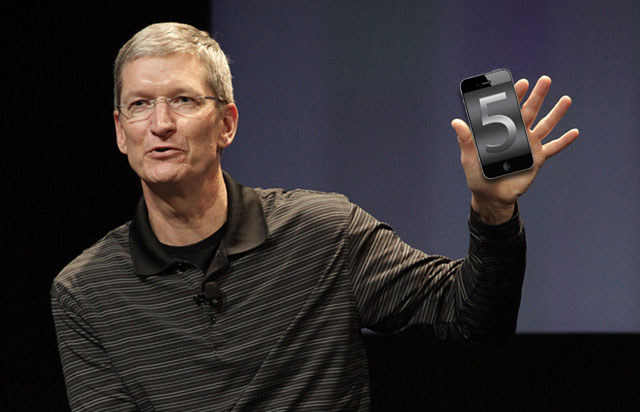Tim Cook has apparently created as much value as Steve Jobs did since becoming Apple CEO — and of course, Cook did it while also dropping some less-than-secret personal contexts that make him stand out in the tech industry. In straight nominal terms, no company in history has ever been bigger than Apple is right now — it could legitimately become the first trillion-dollar company, which would be insane (although admittedly, Microsoft in the late 1990s was more valuable than Apple is now when you factor in inflation).
Thing is, no one really wants to give Tim Cook the credit, right?
There are a couple of issues here.
The first, as pointed out by Quartz, is the idea of “the illusion of marginal productivity,” which comes from Thomas Piketty (who I quoted here once to prove I’m intelligent). That’s a fancy, over-intellectualized way of saying “You can’t really determine the value that one manager, even the CEO, has to a company.” The sheer fact of the matter is that the CEO’s ass is on the line more — which means they make more money, yes — but oftentimes, CEOs should be at a big strategy level, and instead they’re down in the tumbleweeds line-editing press releases. (I’ve seen that shit happen, even at huge companies.)
In essence, people have literally no idea how to manage — even CEOs, who we often tend to revere.
So that’s the first part of the equation — people don’t speak to Tim Cook’s success as much as Steve Jobs because, in reality, you can’t necessarily speak to the success of either. Apple is a dominant company. Joe Schmo from Cupertino could eventually become the CEO, and it might still pass the trillion-dollar mark. We don’t want to believe that, but it’s true. That is, in essence, why people often value products over people in organizations.
The other thing is just the complete deification of Steve Jobs in our corporate world — he’s the modern-day Henry Ford, for chrissakes — which rolls up with the overall deification of Silicon Valley/tech companies. Steve Jobs has had best-selling books written about him, he’s had movies made about him, he’s had his wardrobe analyzed, his death road-blocked cable news, and he’s quoted in literally every slide deck by a middle manager that I’ve ever seen. (Literally.)
Tim Cook has achieved none of these things.
Now, part of that could be because he’s gay, but I doubt that’s it — although it wasn’t a big secret in Silicon Valley, that’s only a tiny percentage of America. Most people probably had no idea. Honestly, most people probably have no idea who Tim Cook is, if you really get down to it. It’s just people that follow tech or business culture who would; that’s a lot less people than you might think.
The bigger parts of it are:
- Hard To Follow A Legend: Quick, you a sports fan? Name the first Miami Dolphins QB after Dan Marino retired. You a government buff? Name the President immediately after Lincoln. It’s hard to do that stuff without Google, right? Legends resonate over time; the person after a legend can actually achieve more success on some levels and it won’t be noticed. Humans get set in their patterns of understanding information; it can take a lot to change what they contextually understand and process.
- Cook has less great soundbites: Jobs said a lot of shit that’s easy to put on slide decks and billboards and in magazine articles. Tim Cook has less quotes of this nature. Here are a few, but even that list notes Cook is “low-key” and “doesn’t grant in-depth interviews.”
- We often assign success to what the predecessor did: LBJ, in my humble opinion, was a great President — but I think most Americans assume JFK would have done all that stuff if not for a singular day in Dallas. You see this all the time in college football. A coach has a good season and naysayers emerge: “He’s coaching players that the last guy recruited!” I’m sure most people that do know who Cook is assume that he’s just riding the world Jobs set up for him. Maybe true, maybe not. The fact is, Jobs is dead right now and Apple is still basically printing money. Someone’s minding the store.
What does all this mean? Nothing. It basically means “Steve Jobs is a business and product legend, we’ve been taught to believe that, and that theme will continue unabated for years. Tim Cook is about to be the leader/shepherd of a trillion-dollar company and no one knows a lick about him.”
So in this, the season of giving, I ask one thing:
As you prepare those end-of-year slide decks, find a Tim Cook quote and toss one on there. It may be a bit needle-in-a-haystick, but let’s show the world of middle managers that we understand the goal of a CEO is to preside over the making of cash, and Tim Cook has done that. Let’s praise Tim Cook and let him belong, broadly, to the world of mind-numbing year-end recap presentations!

One Comment
Comments are closed.